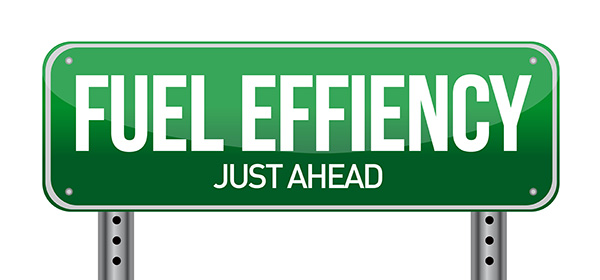
Are you noticing more trips to the gas station than you’d like? Whether you're driving an older model or a brand-new car, improving fuel efficiency is something almost every car owner has thought about at some point. Fuel costs can add up quickly, so finding ways to stretch each gallon can make a big difference. But can you actually improve your car's fuel efficiency, and if so, how?
Keep Your Tires Properly Inflated
One of the simplest and often overlooked ways to improve fuel efficiency is by keeping your tires properly inflated. Underinflated tires create more resistance, which forces your engine to work harder and burn more fuel. Think of it like riding a bike with flat tires—it’s a lot more tiring, right? Your car operates the same way.
Make it a habit to check your tire pressure regularly. Most cars have a recommended tire pressure range, which can be found in your owner’s manual or on a sticker inside the driver’s side door. Keeping your tires at the right pressure will not only improve fuel efficiency but also extend the life of your tires.
Reduce Excess Weight in Your Vehicle
Carrying extra weight in your vehicle may seem harmless, but it can actually decrease your fuel efficiency. Your car’s engine uses more energy to move heavier loads, which means more fuel consumption. For every 100 pounds of unnecessary weight, your fuel economy can drop by up to 1%.
Take a look at what's in your trunk or back seat. Do you have items you don’t need for your day-to-day drives? Tools, equipment, or even sporting gear could be weighing down your vehicle unnecessarily. Lightening your load is an easy way to improve gas mileage.
Adopt Smoother Driving Habits
The way you drive has a significant impact on how much fuel your car uses. Aggressive driving behaviors like speeding, rapid acceleration, and hard braking can dramatically reduce your vehicle’s fuel efficiency. According to studies, driving sensibly—avoiding aggressive habits—can improve your gas mileage by as much as 20% on highways and 30% in city driving.
Instead of speeding to your next destination, maintain a steady speed and avoid unnecessary acceleration. Using cruise control on highways is a great way to stay consistent and save fuel.
Regular Vehicle Maintenance Is Key
Skipping out on routine maintenance is a common cause of poor fuel efficiency. Something as simple as a dirty air filter can restrict airflow to your engine, causing it to burn more fuel. Similarly, worn-out spark plugs, low engine oil, or clogged fuel injectors can all contribute to decreased fuel economy.
Keeping up with regular maintenance, like oil changes, air filter replacements, and spark plug checks, ensures your car runs at its best. A well-maintained vehicle will always use fuel more efficiently.
Use the Right Fuel
If your car is designed to run on regular gasoline, using a higher-octane fuel won’t provide any extra benefits in terms of fuel economy. However, using a lower-octane fuel than what’s recommended for your vehicle can harm performance and reduce efficiency. Stick to the manufacturer’s recommendations for the best results.
Combine Trips to Reduce Driving Time
If you find yourself constantly running errands, plan ahead to reduce unnecessary driving. Combining trips into one longer drive, rather than several short trips, can improve fuel efficiency. Cold engines are less efficient than warm ones, so when your car is already warmed up, you’ll use less fuel on extended trips compared to frequent short ones.
Next time you need to hit the grocery store or run an errand, think about combining tasks and minimizing trips. Small changes like this can add up to noticeable fuel savings over time.
Looking to improve your vehicle’s fuel efficiency? Happy Wallet Quality Auto Repair offers professional maintenance services that can boost your car's performance. Stop by for a tune-up and see the difference in your gas mileage today!